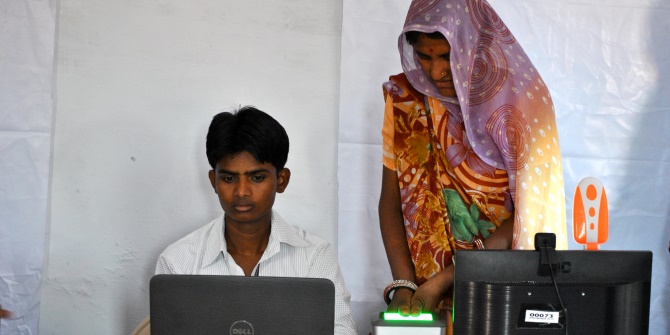 Following his well received lecture ‘Barrister Gandhi Takes the Stand’ at the Honourable Society of the Inner Temple, Dr Faisal Devji talks to Rebecca Bowers about Gandhi’s experience as a lawyer, and how his unconventional way of thinking inspired an anarchistic vision amongst Indians against the colonial regime.
Following his well received lecture ‘Barrister Gandhi Takes the Stand’ at the Honourable Society of the Inner Temple, Dr Faisal Devji talks to Rebecca Bowers about Gandhi’s experience as a lawyer, and how his unconventional way of thinking inspired an anarchistic vision amongst Indians against the colonial regime.
RB: In your lecture Barrister Gandhi Takes the Stand, you spoke about how for Gandhi social relations should be defined by disinterest and not interest. Can you please elaborate a little further on this?
FD: Gandhi understood that self-interest, whether in its individual or collective form, represents the basic category of liberal politics. He also realised that it is not something given to us by nature but has to be set in place through considerable effort. Since interest conceived as ownership was tied to the regime of private property, however, it could only have a marginal existence in a place like India, where property and so ownership had not yet come to define all social relations. This meant that Indian social relations were often marked by modes of behaviour and practice, both violent and non-violent, that could not be accommodated within the logic of interest. Instead of trying to eliminate these altogether, which he thought an impossible task, Gandhi wanted to purify and expand them as forms of disinterest and altruism that deployed sacrifice in the cause of non-violence. He argued that all societies were in fact founded upon such sacrificial or disinterested relations, including those between lovers, friends or parents and children, without which no collective life was possible. Such relations would in his view constitute an ever-expanding limit to the logic of interest that determined modern law and politics, which Gandhi saw as instrumental and so destructive of social cohesion and moral life.
RB: In what way are rights considered alienable in the Gandhian sense?
FD: While Gandhi was not against rights, he thought that they should be always be linked to their corresponding duties. For whereas rights could only be generic in their universality, since they applied to all persons in the same manner, duties alone were capable of taking into account the particular circumstances of each. One’s duty was never generic but determined by context, and so could only be recognised and carried out by oneself. It was in this sense inalienable and represented the sovereignty of the moral individual, unlike the generic character of rights. Moreover, rights could only be declared and enforced by the state, and so were not in fact inalienable–indeed they were very often inoperative precisely because states as well as other individuals refused to honour them. Duty was therefore a far more crucial moral and political category, both because it remained within the possession of individuals and was capable of addressing any situation he or she faced with the requisite complexity and nuance given its reliance on context. If the primary right is that of life, the chief duty is that of death–to sacrifice one’s life for others. And it was this sacrifice that Gandhi thought was closest to non-violence, whereas the obsession with life invariably entailed depriving others of it.
RB: You mentioned that Gandhi often used lawyerly rhetoric and yet also distanced himself from the profession. How would you say the profession continued to influence him and how did he reject it?
FD: Gandhi was critical of the legal profession, especially in a colonial society, because he saw it as legitimising and easing the way for brute force. Lawyers, he thought, made their clients depend upon an illegitimate state by making it a neutral third party, its very foreignness allowing it to decide disputes among Indians. But this simply meant that Indians were now unable to relate to one another without the mediation of this state, upon which they had come to depend as divided interests. In criticising the law, Gandhi was therefore seeking to make direct relations possible once again among Indians and so break down their character as opposing interests, even by risking violence to achieve this. But of course he didn’t want to destroy law altogether, only to limit its reach in Indian society, which he worried was far too litigious and so intolerant of difference. The law only seemingly served to displace violence by taking conflict to mediation, for it could never resolve such conflicts but only temporarily defer them. Rather than rejecting law altogether, then, Gandhi often placed its categories in quite novel contexts, as when he insisted on pairing rights with duties and so limiting the reach of one by the other.
RB: In your book The impossible Indian, you challenge conventional views of Gandhi, which you also drew out in your lecture. How did the seeming contradictions within Gandhi’s character (such as simultaneously holding both conservative values and liberal views) both win and alienate him from potential supporters?
FD: While Gandhi’s thought can at times seem paradoxical, it had an extraordinary resonance among Indians and indeed many others during his own lifetime. Whether people actually understood his intentions is neither here nor there, for what Gandhi’s ideas and practices allowed them to do was to dissociate their moral and political lives from the institutional logic of the colonial state and recognise the sovereign power invested in their own person. This anarchistic vision meant that Gandhi’s ideas could operate both among those who admired him and those who did not. And indeed even his enemies continue to depend upon Gandhian terms and procedures, such as fasts, marches and what he called satyagraha or truth-force, a word that even the Mahatma’s great enemy, the Dalit leader Ambedkar used to the end of his career. It is even possible to see his assassin’s sacrificial act, of giving himself up to the law after killing Gandhi, as one that drew upon the ideas his victim had made commonsensical. The problem with Gandhian practices, in other words, is that they are anarchistic enough to be morally and politically ambiguous, and so the task of non-violence would be to constantly convert them to the side of virtue.
RB: Following your last two publications, what are you currently working on for your next book?
FD: I am hoping to begin writing a book on political thought in contemporary Islam. Whereas most analyses of modern Islam make use of a centuries-old stereotype to describe it, which is to say that of an excessive politicisation of religion, I want to argue the opposite point. In my view it is not politicisation that defines Islam today, even and especially when looking at the problems posed by Islamism or militancy whatever their contexts and causes, but rather the absence of politics. I intend to explore the contradictions of Islam itself as a modern category, one that was founded in colonial times upon the rejection of politics as a site of freedom. The moment politics is replaced by law it loses its freedom, and I see much of Muslim thought in modern times as dominated either by the effort to bury or recover this freedom.
Cover image: Lecture Barrister Gandhi Takes the Stand, Inner Temple. Photo credit: The Honourable Society of The Inner Temple.
Coming soon: Barrister Gandhi Takes the Stand lecture recording.
This article gives the views of the authors, and not the position of the South Asia @ LSE blog, nor of the London School of Economics. Please read our comments policy before posting.
About the Authors
 Dr Faisal Devji is currently University Reader in Modern South Asian History, and Director of the St Anthony’s College Asian Studies Centre, Oxford University. Dr Devji’s work has focused on political thought and democratic practice in South Asia, as well as modern Islam. He has written on a range of topics including Gandhi, the Taliban, and Pakistan, and has also regularly contributed to publications including The Hindu and The Guardian.
Dr Faisal Devji is currently University Reader in Modern South Asian History, and Director of the St Anthony’s College Asian Studies Centre, Oxford University. Dr Devji’s work has focused on political thought and democratic practice in South Asia, as well as modern Islam. He has written on a range of topics including Gandhi, the Taliban, and Pakistan, and has also regularly contributed to publications including The Hindu and The Guardian.

Rebecca Bowers is a blog editor at the South Asia Centre and a final year PhD student in the Anthropology Department at the London School of Economics. Rebecca’s research explores the lives of female construction workers and their families in Bengaluru, India.







